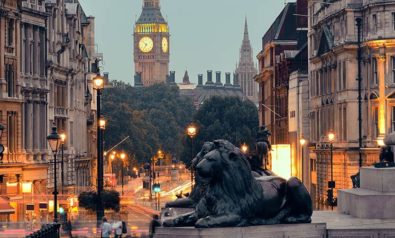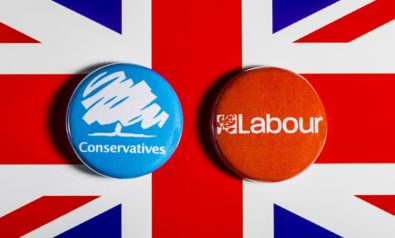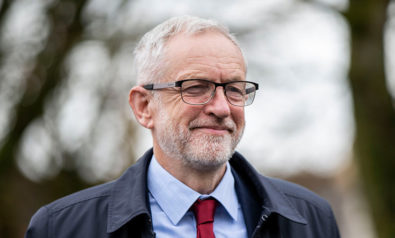The morning after the night before is always a difficult moment. In taking stock of what happened in Britain on December 12, a multitude of raw emotions and feelings rush around in the mind.
The old adage that the opposition never wins elections, but it is the government that loses them, could well apply in this instance. But it was never on the cards leading up to the UK general election. Nobody truly expected that the people of Britain would make their decisions in the way they did, electing the Conservative Party in significant numbers and putting Labour firmly in second place, now in the position of having to comprehend such a heavy defeat.
360° Context: Britain Faces a Historic Election
Yet the Labour Party membership is bigger than ever, the manifesto was largely popular — even seen as revolutionary by some — and there was enough will against Prime Minister Boris Johnson and the Tories. However, that was supplanted by the very negative campaigning against Labour leader Jeremy Corbyn in much of the media.
For anyone not having met the man, forming an adverse opinion of him was the only outcome. Too many people branded Corbyn as anti-Semitic, a terrorist sympathizer or a communist — and many believed this. Too many voters felt the need to “get Brexit done” and believed it was Labour standing in the way.
The Tories
On the other side, the Tories have weaponized every electioneering technique available to them. From the famous Saatchi & Saatchi advertisement boards in the 1980s that helped Margaret Thatcher secure thumping victories to today’s world of micro-targeting wavering voters in marginal seats, this has been the main strategy to swing the electorate. And as the big tech giants continue to support most political advertising unchecked, these kinds of problems will remain.
So, what happens now is the $64,000 question. After a minor cabinet reshuffle, Johnson will attempt to get Brexit done soon after Christmas. The very right wing of the party wants the UK to leave the European Union without both a withdrawal agreement and a trade deal, and the prospect of that has increased because of this election outcome. The implications of a no-deal exit have been discussed at length for months if not years, yet a very limited few remain hell-bent on the result.
With a weakened opposition, the Tories will feel galvanized, exuberant and well up for all the hardest battles to come. With a majority in Parliament, they will have the numbers to push through the Brexit deal that only they want.
The Opposition
But for any functioning democracy, the opposition is fundamentally important, and so it is absolutely right that Labour works out its failings and comes to terms with it quickly. A momentum that has been the backbone of the party’s resurgence is not going to go away.
So many people who believe in the ideas of wealth redistribution; taxing the super-rich disproportionately higher than everyone else; equality of opportunity and outcome; social care and social protection; social trust and social cohesion; community development, diversity and multiculturalism; and strong public services that are efficient and appropriate for today’s needs in a complex, interdependent economy have to stick to their guns. One possible scenario is that the minimum period of a five-year term in office could be reduced if the Tories make a complete hatchet job of Brexit and the people begin to rise up and the opposition parties get their acts together.
It is not all doom and gloom just yet. The election results suggest a bloody smack on the nose of the Labour Party, but it can heal and work out its direction again quickly enough. Without a doubt, change is required at the top and there needs to be greater clarity of messaging and content for the centrists and the party membership.
In many ways, it seemed as if there were three Labour groups that failed to work together as one party. The membership is youthful and pro-left on many fronts, but MPs are unsure of their positions and some are still tempted by Blairism, while the leadership that is relatively hard left had a bigger fight on their hands from within their own ranks.
There will be many challenges ahead. The new Conservative MPs will feel emboldened, almost drooling at the prospect of what awaits them. For the opposition parties, theirs is a need for rebirth. For the people of the country and for all who have a stake in wanting it to remain a beacon of light and hope, there is always the opportunity to make some kind of difference. It is not time to give up, but the time to reflect and then rebound. The fight is not over yet.
*[This article was cross-posted on Medium.]
The views expressed in this article are the author’s own and do not necessarily reflect Fair Observer’s editorial policy.
Support Fair Observer
We rely on your support for our independence, diversity and quality.
For more than 10 years, Fair Observer has been free, fair and independent. No billionaire owns us, no advertisers control us. We are a reader-supported nonprofit. Unlike many other publications, we keep our content free for readers regardless of where they live or whether they can afford to pay. We have no paywalls and no ads.
In the post-truth era of fake news, echo chambers and filter bubbles, we publish a plurality of perspectives from around the world. Anyone can publish with us, but everyone goes through a rigorous editorial process. So, you get fact-checked, well-reasoned content instead of noise.
We publish 2,500+ voices from 90+ countries. We also conduct education and training programs
on subjects ranging from digital media and journalism to writing and critical thinking. This
doesn’t come cheap. Servers, editors, trainers and web developers cost
money.
Please consider supporting us on a regular basis as a recurring donor or a
sustaining member.
Will you support FO’s journalism?
We rely on your support for our independence, diversity and quality.
















